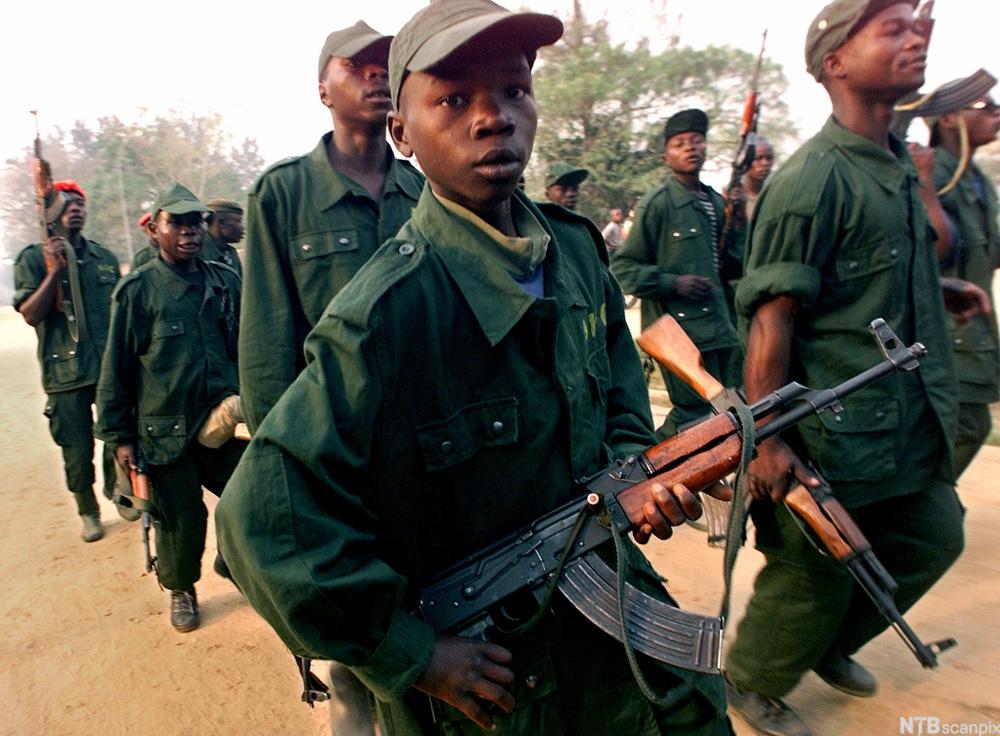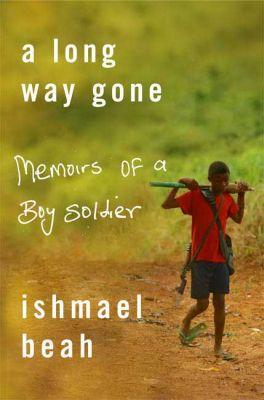

12-year-old Ishmael Beah lives a fairly happy life in Sierra Leone until the civil war breaks out and he is forced to run for his life. He is alone, separated from his family, and he wanders a land rendered unrecognizable by violence.
By the age of thirteen he is forcefully recruited by the government army. During the next two years Beah, a gentle boy at heart, finds that he is capable of truly horrendous acts. He is trained to kill his enemies in the most brutal ways; something that at first seems impossible but later becomes a habit.
In the book we follow Beah through the years as a child soldier in Sierra Leone. We also see him through the period after he is released by the army and sent to a UNICEF rehabilitation center. Here a new struggle begins; the struggle to re-enter civilian life and to regain his humanity. And finally we follow him to the USA where he now lives. He is today a student, writer and a human rights activist.
This NRK interview (13 min) introduces you to Ishmael Beah, his previous life and his present life.
A Long Way Gone – Excerpt
Working with the Book
After having read the first few pages of the book, what was your first impression? As you continued to read the story, did your first impression about the book change? If so, why?
- Comment on the meaning of the title: A Long Way Gone: Memoirs of a Boy Soldier.
- Where and when does the action take place? How does the setting change throughout the book? Describe the social and political context of the book.
- Ishmael Beah is a dynamic character. Describe how he changes during the book, and comment on the development he goes through.
- What does he remember about his father, mother, brothers, grandfather, grandmother, and other relatives? In what context do these memories occur? What do these memories tell us about Beah himself and about his culture?
- Who does Beah consider to be important to him on his journey through Sierra Leone and in New York? Why are these people important? There are some people that Beah can never forget. Who are they?
- Why are there so many boys and men mentioned in Beah's memoir, and so few girls and women?
- Are the government soldiers and the RUF members ever described in a positive way? If so, how? What stands out in Beah's memory about these people?
- How would you describe the basic plot of the memoir? Describe at least one event in the novel that made an impression on you. Why do you remember this particular part so well?
- Does the narrative progress chronologically? When does it diverge from a straightforward, linear progression?
- Comment on the language Beah uses. Can you say anything about his vocabulary, use of imagery or tone / feeling of the story?
- The book’s graphic depictions of violence are numerous and unsettling. What is your emotional response to reading about so much violence? We often see violence in films, video games and on the evening news. What do you think is most disturbing: seeing it on film or reading descriptions of it by the person who committed the atrocities?
- Why do you think Beah is so detailed in his description of the violence that colored his life for 3 years? If he had spared the details, how would that have changed your perception of the book?
- In your view, what is the main message of the memoir? What do you think Ishmael Beah is trying to teach us?
- Explore these themes and explain in what way they are relevant to A Long Way Gone.
- Family and community
- Loss and suffering
- Redemption
- Death and life
- Friendship
- Hatred and revenge
- Forgiveness and compassion
- Happiness
- Survival
- Growth and growing up
- Governments and politics
- Leaders and followers
- Remembrance and memories
- The present, the past and the future
- Nature, the Natural World, Mother Nature
See also Working with Novels
Useful Sources
A Long Way Gone – Macmillan . Study Guide, excerpt from audiobook, about the writer.